
Have I ever talked to you about independent play time? No? Well, if we’ve ever had face-to-face interaction before, and not just through the computer screen on this blog, chances are that I’ve raved about independent play time to you before.
If you’re not familiar with the term or never heard of it before, independent play time is basically the concept that toddlers (and even babies!) are capable of playing by themselves for certain chunks of time. Many people have suggested that it’s good for little ones to learn how to play solo without the assistance of an adult and that oftentimes play can actually be inhibited by grown ups who unintentionally stifle a child’s creativity and imagination. If you do more research, I’m pretty sure you can find loads of resources that explain the concept better than I ever could so feel free to Google away if you’re curious for more information.
As for me, the first time I’d ever heard of independent play time was when E was not even 1 years old yet. The idea was very intriguing to me and I liked that it involved solo play time since it was exhausting for me to constantly entertain her. As it turns out, E never really needed much interaction with me and she was fantastic with solo play but that, we discovered, was more due to her autism and lack of social skills than my awesome training with independent play (LOL). The value of independent play time stood out more to me when D came along because I oftentimes needed him to be self-occupied so that I could tend to his sister.
I started independent play with D when he was almost 1, maybe around 10 months? For me, I wanted to be sure that he was big enough to explore and be curious about his surroundings. I started in really small time increments .. maybe 15 minutes or so? I’d put a few books or a favorite plastic cup (empty) into his crib and plop him in there to explore and play by himself. I won’t lie, he cried fiercely the first few times. He didn’t like being left in there alone! But I stuck to my guns and he learned pretty quickly to just occupy himself for the short amount of time he was in there alone.
Once he mastered 15 minutes alone, I tried pushing it to 25 minutes. Then 35. Then 45, and now almost an hour. Yes, you read that correctly. My 2-year will happily and willingly play alone in his crib for up to an hour. At the moment I’m writing this blog post, D has been playing his crib for almost 4o minutes and is still happily babbling to himself and playing with his toys. In that time, I’ve been able to do my Bible study homework and pen this blog post real quick. I love it! I’m not shy about plopping my toddler in front of the TV to keep him occupied so I can get some stuff done but I feel like independent play time in his crib is better for his development (no zoned out TV eyes) and a better use of time for me because I don’t have him running back and forth between the TV and myself; he’s confined to a safe but limited space.
These days, D enjoys his independent play time for the most part. I don’t do it every day but I do have him do it pretty regularly. He knows the routine now, too; when he sees me start to put a few toys into his crib, he actually eagerly assists me in handing me his favorite things he wants to play with. He makes sure his blocks are in there, his favorite car, his blankies … and then when it’s time to go in, he doesn’t fight me at all. He wants me to pick him up and then he plops down in his crib and doesn’t even look at me. Haha, isn’t that crazy!? It’s not because I’m an amazing parent or he’s a perfect child. It’s simply because I taught him the discipline of sitting and playing by himself; anyone can do it!
If it sounds like something that you would want to try, too, I say go for it! Here are some tips from me to you in case you do want to give it a go:
- If your child has never done this before, start in small time increments. Don’t do it for the first time and expect your child to play for a full hour alone like mine does.
- Use age-appropriate time chunks. I would never have left D to play by himself in his crib for an hour (even if capable) when he was only 10 or 11 months old. It’s too long for a little baby! If you have a young baby, make sure to remember not to leave him for too long.
- Leave toys that you know are safe but engaging – no sharp objects or tiny pieces that he could swallow. Also, this is a personal preference, but I generally don’t leave any snacks or milk with him (sometimes I leave water). I don’t want him to associate that time with snacking; it’s time to explore and play!
- I’ve noticed that if D hears my voice at all while he’s playing, he immediately wants to come out and join me. I could have the TV going or be doing dishes or other equally noisy things that don’t bother him but once he hears my voice, it’s game-over.
- I make sure to keep his bedroom door half-way open so he doesn’t feel like I’ve just abandoned him. I open all his windows so he can look outside, too. And I rarely check on him unless he’s crying – if he sees me, it’s also game over.
- I am always within earshot of his room. I can fully hear what he’s doing and feel comfortable with the fact that I can’t actually see what he’s doing because I know he’s confined to his crib and I can hear him talking and playing happily.
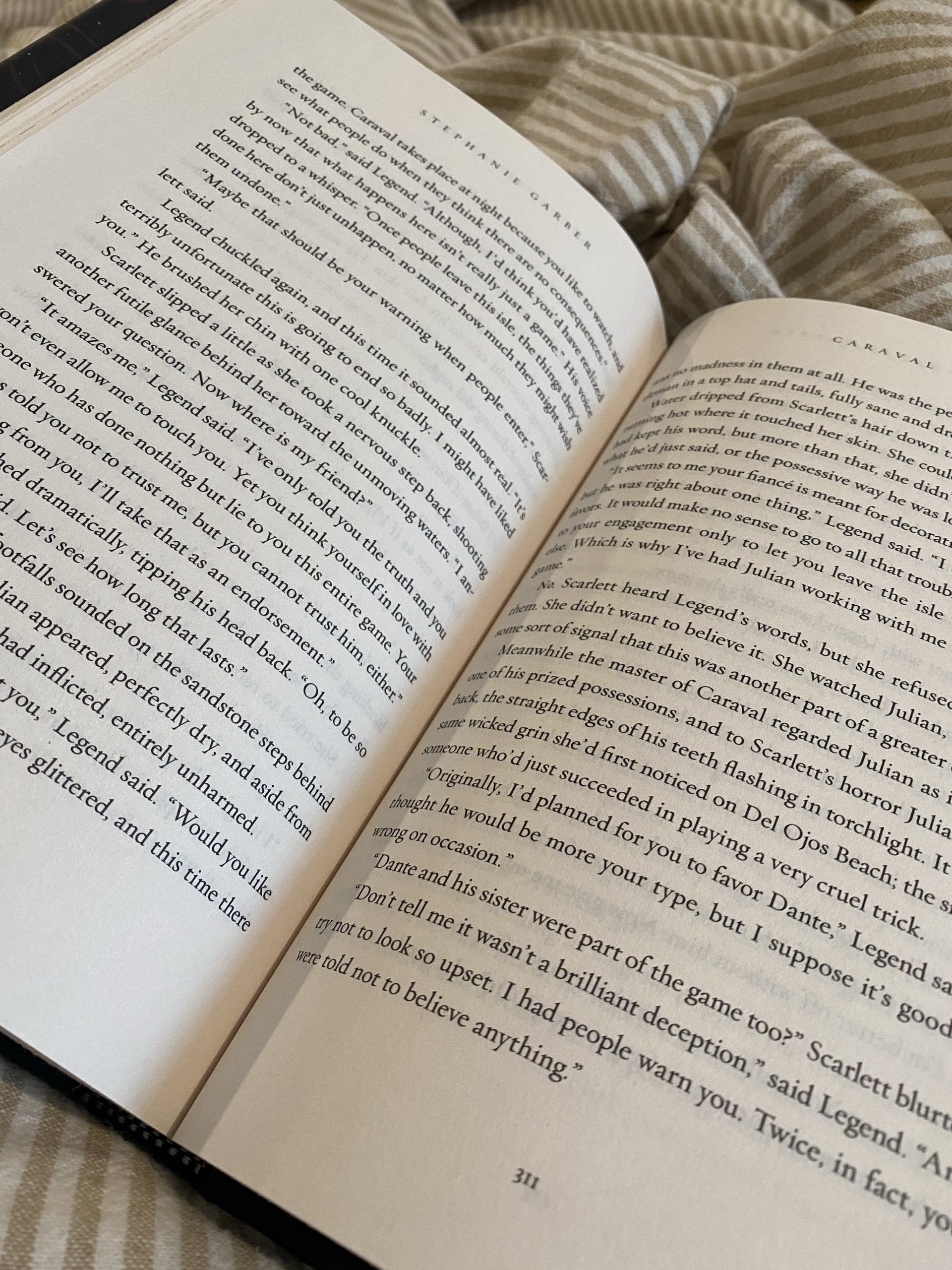

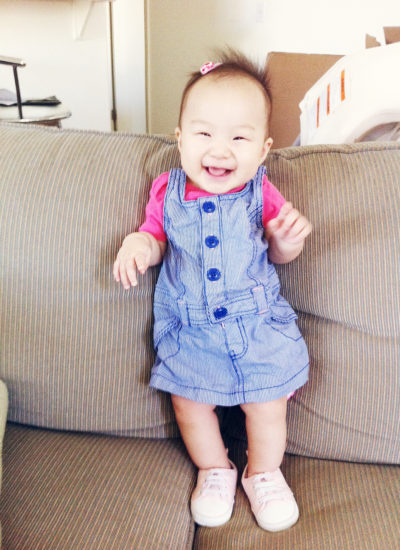
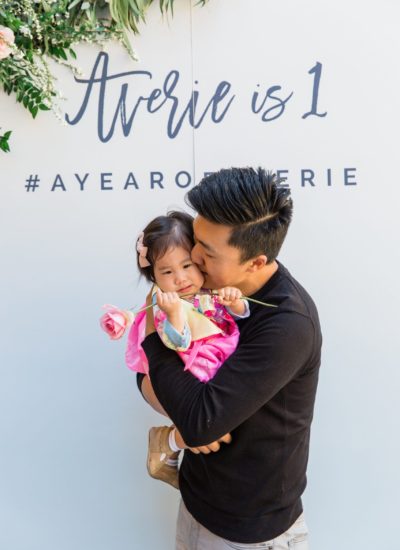
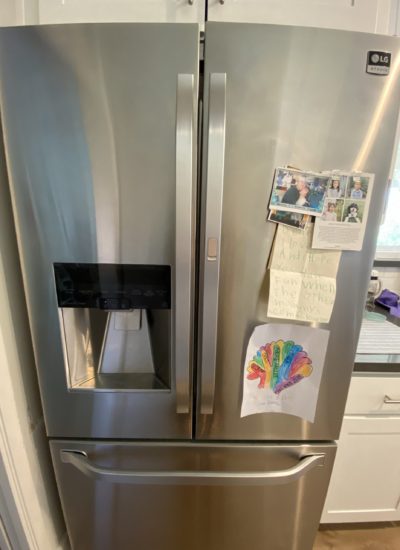
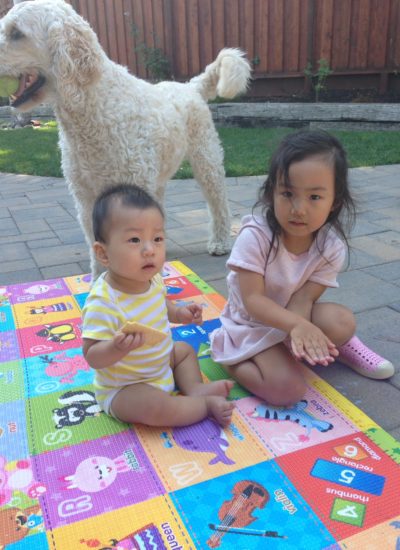
Leave a Reply